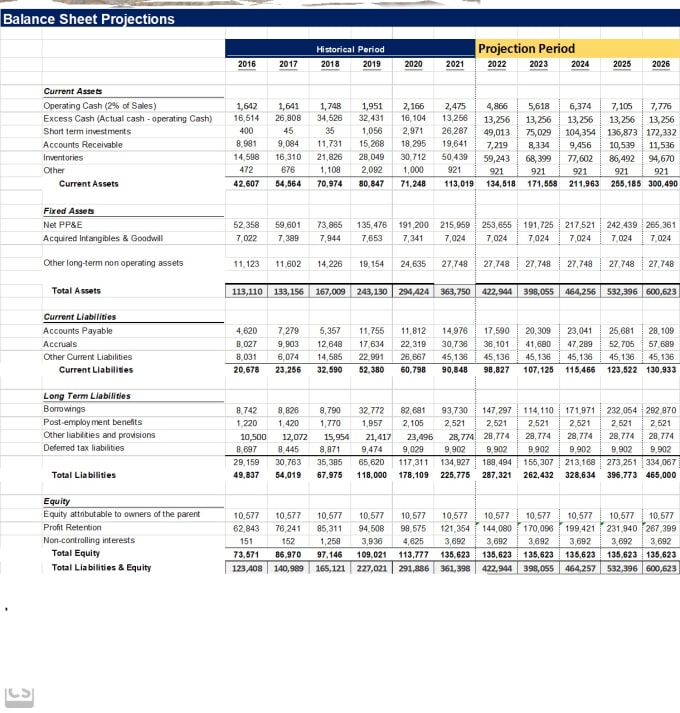Within today's fast-paced monetary environment, grasping equity evaluation is not just a luxury but a necessity for investors seeking to make well-informed choices. As stock markets continuously in flux, individuals and corporations alike are searching for the expertise of equity evaluation experts to navigate the intricacies of investing. These professionals have the training and experience to assess companies, evaluate their potential for expansion, and provide sound guidance customized for varying risk levels.
Equity analysis goes further than mere calculation; it involves a deep dive into a company's fundamentals, market trends, and industry dynamics. Through leveraging the knowledge of specialists, investors can identify undervalued stocks and capitalize on opportunities that may otherwise go unnoticed. Regardless of whether you're a veteran investor or just starting out, utilizing the expertise of equity evaluation experts can be a game changer in your approach to investing, helping you to make decisions that suit your financial objectives.
Grasping Equity Evaluation
Equity analysis is a thorough approach to analyzing a company's stock to ascertain its potential for investment. It involves examining financial statements, market conditions, and economic indicators to evaluate a company's efficacy and prospective growth opportunities. By comprehending the key components of a firm, equity analysts aim to provide guidance that can guide investors in making educated decisions.
One key aspect of equity analysis is the assessment of a company's financial health. Analysts measure various metrics such as earnings per share, price-to-earnings ratio, and return on equity. These measures help investors understand how well a company is generating profit relative to its revenue and how effectively it is using its assets. Furthermore, patterns in these metrics over periods can signal the consistency or volatility of a company's financial position.
Beyond financial metrics, equity analysis also incorporates non-numeric factors such as management effectiveness, industry position, and competitive landscape. Analysts factor in how external factors, including regulatory changes and market shifts, may influence a company's operations. This holistic approach not only helps identify undervalued stocks but also provides a clearer picture of the risks and rewards connected with potential investments.
Key Metrics and Ratios

As conducting equity analysis, grasping key metrics and ratios is vital for evaluating a company's fiscal well-being and performance. One of the key ratios is the price-to-earnings (P/E) ratio, which compares a company's current share price to its earnings per share. A higher P/E ratio may suggest that investors foresee future growth, while a lower P/E could imply that the stock is undervalued or that the company is facing challenges.
Equity analysis specialists employ this ratio to identify potential investment opportunities and assess whether a stock's price is justified by its earnings.
Another crucial metric is the return on equity (ROE), which measures a company's ability to generate profit in relation to shareholders' equity. ROE indicates how effectively management is using the equity invested by shareholders to generate profits. A stable or increasing ROE is a positive sign, signaling that a company is generating returns for its investors. Equity analysts closely monitor ROE trends as they evaluate a company's performance over time and compare it against competitors.
Furthermore, analysts often employ debt-to-equity (D/E) ratio to assess a company's financial leverage and risk profile. This ratio compares a company's total liabilities to its shareholder equity, showing how much debt is used to fund its operations. A elevated D/E ratio may create concerns about financial stability, especially in periods of recession. By evaluating these metrics and ratios, equity analysis specialists can provide valuable insights and help investors make informed decisions in the market.
Useful Implementation Approaches
To efficiently utilize equity analysis specialists, commence by explicitly defining your financial goals and risk tolerance. Understanding what you desire to achieve helps specialists tailor their insights to fulfill your particular needs. Whether you are seeking extended growth, income through dividends, or a combination of both, articulating your objectives allows for more concentrated analysis and recommendations. It is crucial to create a team-oriented environment where you can share your thoughts while also being receptive to expert advice.
Subsequently, create a system for reviewing equity analysis reports and insights offered by your specialists. Consistent engagement with their findings not just enhances your understanding of financial trends but also allows you to make informed decisions swiftly. Schedule specific times to review these analyses and think about discussing them with your specialists to clarify any uncertainties. This kind of forward-thinking approach secures you stay aligned with your investment strategy and market movements.
Lastly, blend the insights gained from equity analysis into your broader investment strategy. Use the insight acquired from specialists to make changes to your portfolio as needed. When equity research report or risks, assess how these correspond with your overall strategy. This interactive relationship can lead to more thoughtful decisions and ultimately enhanced investment outcomes, ensuring that you harness the full potential of detailed equity analysis.
